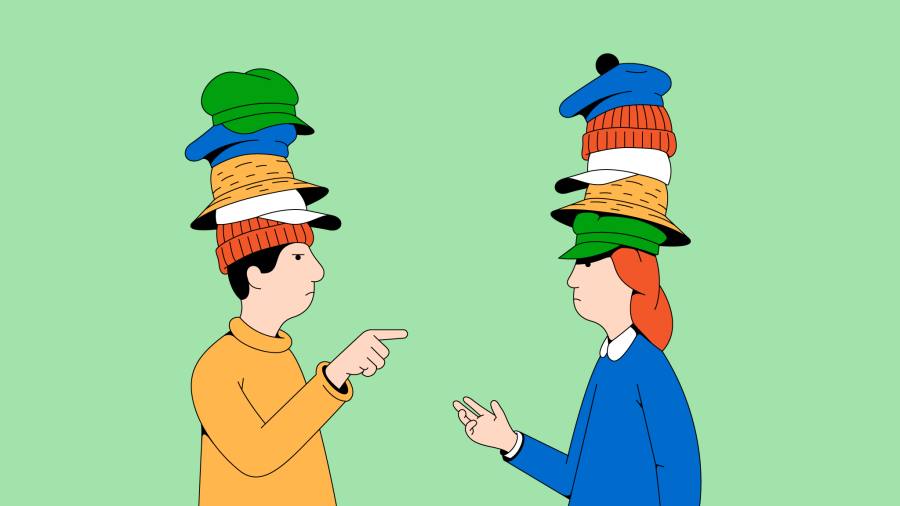[ad_1]
Anyone who has experienced Brexit in Britain or Trumpism in the US knows what a divided society feels like. Spending time in Barcelona last year, I recognised that atmosphere. Catalonia has been split down the middle by the region’s quest for independence from Spain. The resulting quarrels break up Sunday family lunches, or end life-long friendships.
No new state has emerged in western Europe since Malta became independent from the UK in 1964, but now there are three candidates. Scotland’s parliamentary elections on May 6 are effectively a referendum on independence, with the secessionist Scottish National Party expected to win a majority. That same month, Northern Ireland marks its centenary amid a Brexit-inspired push towards Irish unification.
None of these new states is likely to emerge anytime soon, if ever. London and Madrid can block Scottish and Catalan independence. Very few people in either part of Ireland are keen to hurry unification. Instead, these issues will probably stagnate into frozen conflicts, allowing polarisation to seep into everyday life.
Identity issues are the most emotive in politics. Few people stalk out of Christmas dinner because they disagree about the nuances of the Green New Deal. But introduce binary choices like “Should we live in Catalonia or Spain?†or “Scotland or Britain?†and some will get overexcited. In Northern Ireland, of course, unionists and nationalists generally wouldn’t be having Christmas dinner together in the first place.
The best way to keep a society united, argues the philosopher Amartya Sen, is to encourage everyone to hold multiple identities. People can feel simultaneously Catalan and Spanish, Scottish and British, even Irish and British, as long as they are left in peace to muddy their identities. Some are happiest living outside all ethnic clubs. The numbers in Northern Ireland who identified as neither unionist nor nationalist rose in the years before Brexit, notes Katy Hayward of Queen’s University Belfast.
But independence movements push people to choose a single identity. From 2006 through 2019, the segment of Catalonia’s population that considers itself “only Catalan†jumped 15 percentage points, reports José Oller of the University of Barcelona and colleagues.
Worse, these national identities pile on top of other polarising identities. In Catalonia, most indepes, as they are called, are well-off, native-born people who grew up speaking Catalan. In some of their workplaces and social settings, speaking Spanish is now frowned upon. Dissidents risk being informally boycotted in their professional lives.
Meanwhile, people in Catalonia of migrant origin — whether from Spain or abroad — mostly oppose independence. This social divide was pre-existing, but has recently become politically toxic.
In Scotland, supporters of independence are likely to be relatively young, well educated and anti-Brexit, says David McCrone of Edinburgh University. In Northern Ireland, Protestant unionists are more likely than nationalists to be older.
They are also worried about the survival of their identity. This year’s census may show Northern Irish Catholics outnumbering Protestants for the first time ever. And the trade border that Brexit has placed in the sea dividing Northern Ireland from the British mainland is probably here to stay, much as unionists loathe it.
The risk isn’t so much that some of them will try terrorism as that they will lose faith in democracy, says Hayward.
So far, Scotland is the least polarised of these regions. The independence referendum of 2014 — won by unionists — was relatively good-humoured. Even so, in focus groups afterwards, the pollster Lord Ashcroft recorded comments such as, “On my building site now no one talks about football, it’s all politics,†and, “It was testing for us, because we were a divided household. We stayed in different houses on the day of the referendum because he was very strongly Yes.â€
Many Scots in recent years have found firm political identities online, with “rants emanating from all sidesâ€, recounts Elizabeth Anne Bailey in her book Political Participation on Social Media. When a YouGov poll last year found that only 16 per cent of Scots believed Scotland was united, Gordon Brown, the former British prime minister and a vocal unionist, said Scotland looked like “two nationsâ€. He warned, “These divisions could dominate our lives for many decades to come.†“Divisive referendum†may be a unionist mantra, but it’s an accurate one.
I completely understand why most Scots (according to polls) now back independence. They have been governed from Westminster by a party they didn’t elect for nearly 80 per cent of the period since 1945, points out McCrone. Brexit was done to them. Meanwhile, a small plurality of people in England either has no opinion on Scottish independence or actively supports it, reported YouGov last September.
But dividing people into identity groups and then letting the biggest group decide rarely works brilliantly. Better to let sleeping identities lie, and to argue instead about boring issues like carbon offsets and street lights.
Simon and author Leïla Slimani will discuss “The future of the Fifth Republic: writing and thinking about modern France†at the FT Weekend Digital Festival, March 18-20. For more information and tickets visit ftweekendfestival.com
Follow Simon on Twitter @KuperSimon and email him at simon.kuper@ft.com
Follow @FTMag on Twitter to find out about our latest stories first. Listen to our podcast, Culture Call, where FT editors and special guests discuss life and art in the time of coronavirus. Subscribe on Apple, Spotify, or wherever you listen
[ad_2]
Source link






